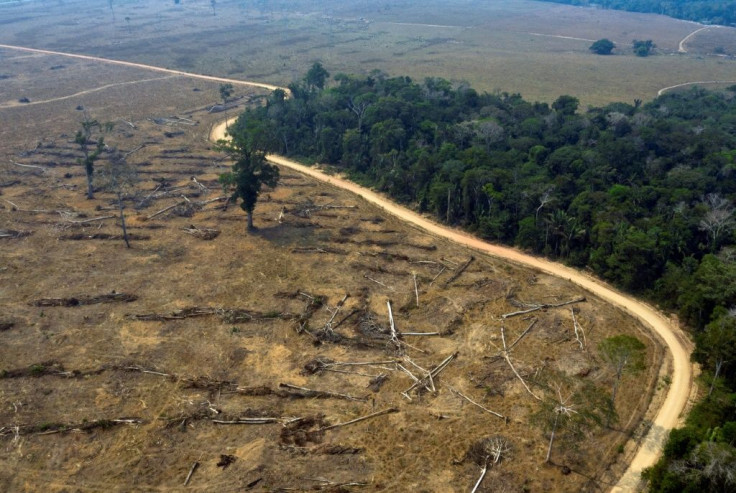Brazil's Meat Giant JBS Launches Anti-deforestation Plan
The world's biggest meat processing company, Brazil's JBS, announced a plan Wednesday to ensure by 2025 that cows it purchases are not raised on deforested land, after facing accusations of fueling destruction of the Amazon.
The company also said it was launching a fund to promote the preservation of the rainforest with a contribution of 250 million reais ($45 million) over five years and a total funding goal of one billion reais, to be raised partly through donations.
"We at JBS are assuming our obligation to carry out the necessary transformation of our supply chain," chief executive Gilberto Tomazoni told an online news conference.
"We know how important the rainforest is in addressing climate change."
JBS has repeatedly been accused of "cattle laundering," in which animals from ranches that are blacklisted for illegally clearing Amazon land are transferred to ones with a clean environmental record to dodge a sales ban.
The company says it has eradicated deforestation from its direct supply chain, but admits it is currently unable to verify cattle supplied to its suppliers by third-party ranches.
The new initiative revolves around a digital "green platform" using blockchain technology that will require JBS suppliers to provide full tracing information on all cattle by the end of 2025.

But some investors said the plan was not enough.
"While blockchain solutions need time to develop, 2025 is a long way away," said Eric Pedersen, head of responsible investments at Nordea Asset Management, which announced in July it was pulling out of JBS over deforestation concerns.
"There are other measures that can be effective before that, for instance stricter controls so that cattle are not bought from owners of approved farms, if they also own farms on disputed land."
Jeanett Bergan of Norwegian fund KLP said "only time and data will tell" how effective the measure is.
"We have to see the detailed evidence in practice, not least given the controversies that have led to the company becoming a major global divestment target," she said.
Brazil faces mounting pressure, including from international investors and trading partners, to slow surging deforestation.
Last year, the first under far-right President Jair Bolsonaro, deforestation of the Brazilian Amazon increased 85.3 percent, to an area nearly the size of Lebanon.






